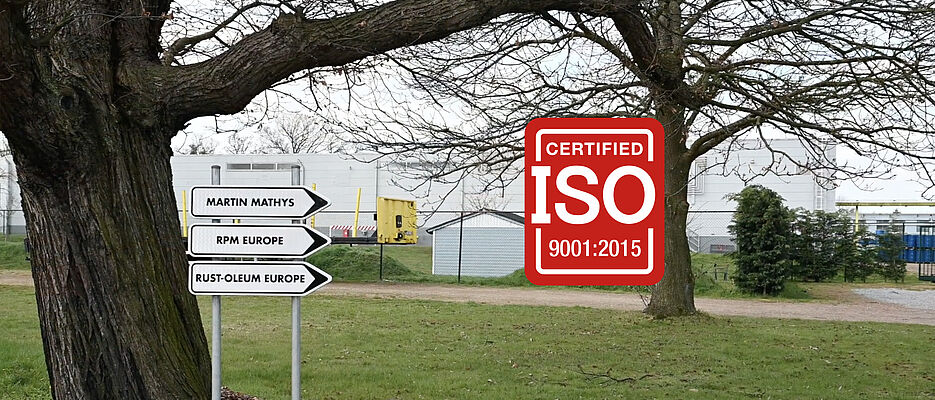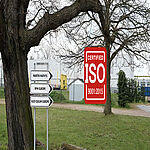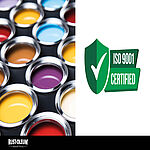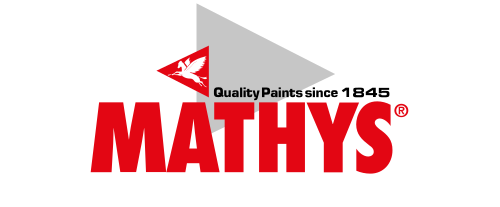Another milestone: ISO 9001 certified
We sincerely believe that our company has the best employees. However, you shouldn't take our word for it. It's thanks to the Rust-Oleum Europe team that we as an organization and company are doing everything we can to meet customer requirements.
That's why we were happy to dedicate this page to Dirk Janssens, our safety coordinator, who's overseeing the ISO 9001 certification, for over 20 years. Below you'll find more about why Dirk comes to work everyday, showing the dedication of all our Rust-Oleum employees and management. We were very excited he was willing to explain us a bit more about the process:
- Congratulations on the renewal of the certificate! Can you start by introducing yourself and explaining to us why ISO certification is good for Martin Mathys and Rust-Oleum Europe?
Thank you, but actually you should congratulate all Martin Mathys employees, because they ensure that the quality management system meets international standards. Martin Mathys has been ISO9001 certified since 1997. When I started working for Martin Mathys in 2002, the company was already working according to this standard. One of the advantages of the certification is that an external auditor examines the various business processes, and that we then receive recognition via an internationally recognized certificate, which we can be proud of.
- Before or during the inspection, were there (unexpected) problems or difficulties that still had to be solved for the renewal of ISO 9001?
Quality control is embedded in our organisation, in all departments, at all levels. An audit performed by external auditors always causes some extra stress and pressure, but no difficulties have arisen during the audit. A total of 18 employees were interviewed by the external auditors.
Evolution of the quality management label
- Do you see big differences between countries for the ISO quality standards of products? Is this the same for most export countries or does it require major adjustments?
The ISO 9001 standard is one of thousands of different ISO standards that apply internationally. Most ISO standards are product oriented, some standards relate to management systems, to management systems. The ISO 9001 standard relates to the quality management system. This standard does not enforce uniformity of the quality management system. Every company can and will have a unique quality management system. The standard is used to assess whether a company or an organization is able to meet customer requirements. As an organization you describe what you do to meet the customer's requirements, then you do it that way and during an audit you prove that you meet the customer's requirements.
- Have there been many evolutions in recent years in the field of testing for research, development, production, logistics, sales and delivery since the first time Martin Mathys received an ISO certificate?
The ISO 9001 standard was adapted for the last time in 2015. The main changes compared to the 2008 version are:
- Focus on leadership and top management involvement
- Risk-oriented thinking and a broader view of risk management and dealing with opportunities
- Emphasis on (quality) objectives, measuring and adjusting if necessary
- Communication and awareness in the organization (this interview helps with this)
- Less formally prescribed requirements
The future: Rust-Oleum Europe plans
- What are the plans for the future to continue to guarantee and improve quality in the field of coatings, aerosols and cleaning agents?
Continuous improvement is an important part of a quality management system. In the management review of the quality management system, which is held annually, it is checked whether the resources are sufficient to achieve the quality objectives. Employee training, (internal) communication, risk analyzes (eg raw material shortages) and the evolution in the requirements of customers and other stakeholders determine in which direction the quality management system will evolve.




